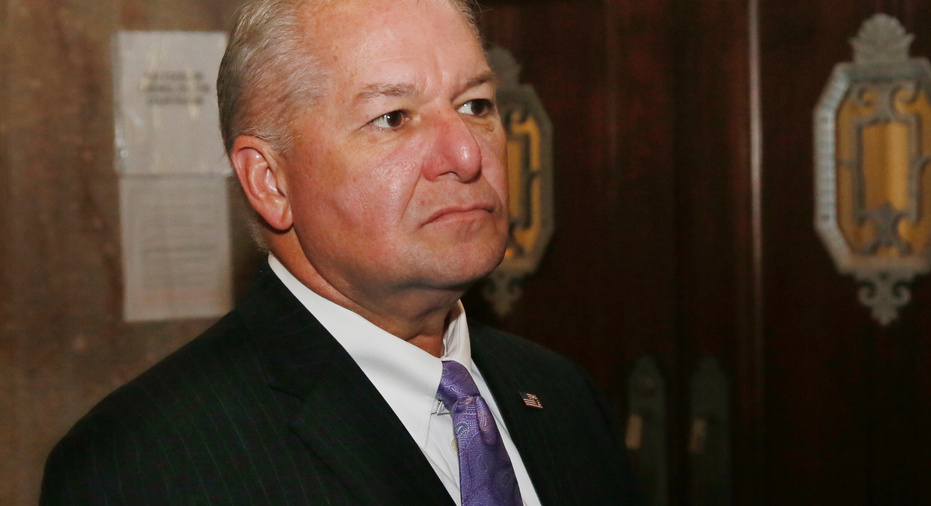Oklahoma politicians stunned by discovery of possible spying

OKLAHOMA CITY – A Republican lawmaker's discovery of a magnetic box containing a high-tech tracking device affixed to the bottom of his truck is being investigated by Oklahoma officials, who also revealed that four other GOP legislators have reported concerns they were being followed.
The mysterious discovery has stunned Oklahoma's political class, and raised questions about who would spy on lawmakers.
"This is outrageous behavior and very reckless and foolish, and it could lead to somebody getting hurt," Oklahoma County District Attorney David Prater said Wednesday, adding that the tactics could lead to felony stalking charges. "They (Oklahoma State Bureau of Investigation) are investigating it, and I'm going to be very aggressive in the prosecution of these matters if in fact they have the evidence to prove the case."
Rep. Mark McBride said he discovered the device on his truck on Dec. 4 and reported it to local police, who forwarded the investigation to the state agency, which has jurisdiction over threats against public officials.
McBride initially told police he suspected someone connected to the wind industry may be responsible. A longtime supporter of oil and gas and a frequent critic of the wind industry, McBride told a Moore police officer he was writing legislation that could negatively affect Oklahoma wind farms.
"It's very unsettling," said McBride, who also has filed a lawsuit seeking to identify whoever is responsible for placing the device on his truck. "I stopped hanging out with some of my friends and narrowed down what I did."
Telephone and email messages left Wednesday with Oklahoma Wind Coalition officials were not immediately returned.
Prater says four other GOP legislators approached him last year with concerns that they were being followed, but no charges were filed in connection with those reports.
Prater said whether a case rises to the level of criminal charges depends on a number of factors, including why someone is tracking or following a legislator.
"When you're talking about lobbyists and certain industries that potentially may have the opportunity to experience a windfall or lose a lot of money based on legislation, money drives a lot of activity, good and bad, and that's what's going on here," Prater said. "When people see that their business or livelihood may be helped or hurt by some certain legislation there, they potentially have the motivation to do something a bit nefarious."
In 2014, Prater pursued criminal charges of blackmail and computer crimes against a tea party activist who sent an intimidating email to a state senator. The activist was found guilty and fined, but the conviction was later thrown out on appeal.
"We know this kind of thing occurs a lot more than it is ever reported to us," Prater said.
___
Follow Sean Murphy at www.twitter.com/apseanmurphy



















